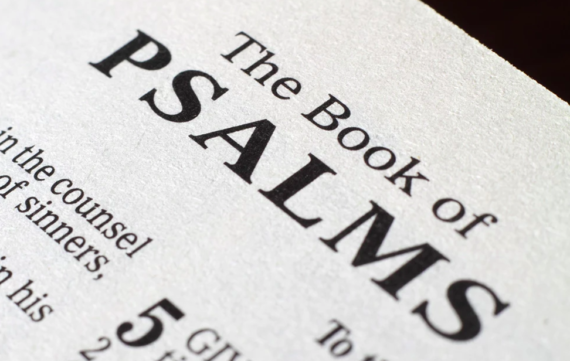This is a much-neglected Psalm, perhaps because it sits right next to 23. This Psalm falls into three parts, and each part tells us something about worship.
The nature of God
We worship by reminding ourselves of who God is.
“The earth is the Lord’s and the fullness thereof, the world and those who dwell therein, for he has founded it upon the seas and established it upon the rivers” (1-2).




He is creator, and therefore owner, of everything. Being reminded of this in worship will change everything we do. If God owns everything, then everything we do must be approached from a stewardship point of view.
We must never worship the earth or any force in nature. Nor may we abuse the earth or any being in nature or treat anything as if it ultimately belongs to us. The Bible teaches this often. Proverbs 12:10 says, “A righteous man cares for the needs of his animal, but the kindest acts of the wicked are cruel.”
In our generation, the unbelievers have managed to portray Christians as unconcerned about nature.
Sometimes this has been done by means of dishonesty. James Watt, Secretary of the Interior under Reagan, was a believer. When testifying before Congress he pointed out that we must use natural resources carefully because we care for them as stewards, and we do not know how long the Lord will leave us here on earth. A newspaper reported that he said the opposite. According to the newspaper he advised using up resources as quickly as possible, for by doing so we would force Jesus to come again. This was pure slander, as the congressional record proved. But the falsehood is still repeated by some today.
Unfortunately, some Christians have shown little concern for good stewardship. Wastefulness has been all too common among us. We have not lived out our belief in God’s ownership as clearly as we ought. Careful use of time, money, and natural resources should characterize everyone who really believes that the Lord created and owns all.
The nature of our response
We worship by remembering how we ought to respond to God.
Who shall ascend the hill of the Lord? And who shall stand in his holy place? 4 He who has clean hands and a pure heart, who does not lift up his soul to what is false and does not swear deceitfully. 5 He will receive blessing from the Lord and righteousness from the God of his salvation. 6 Such is the generation of those who seek him, who seek the face of the God of Jacob. (3-6)
Temple entrance ceremonies were common in ancient time. Most of these ceremonies focused on gifts. One could enter the temple of a pagan god if one brought the proper gift to the priest (a lamb, a goat, or whatever was demanded). Here what is asked is not a material gift, but a right way of life.
How should we respond to God?
We respond to God right by treating fellow humans right and even thinking of them correctly. Do we treat others as being made by the creator in his own image?
We also respond to God’s gifts by seeking God, not by seeking more of his gifts or seeking others beside him. We seek his “face” (6), not what he might give us.
God’s place in our lives
We worship by asking God, the King of Glory, to take the supreme place in our lives.
“Lift up your heads, O gates! And be lifted up, O ancient doors, that the King of glory may come in. 8 Who is this King of glory? The Lord, strong and mighty, the Lord, mighty in battle! 9 Lift up your heads, O gates! And lift them up, O ancient doors, that the King of glory may come in. 10 Who is this King of glory? The Lord of hosts, he is the King of glory!” (7-10)
This part of the psalm may have been used in the ceremony as David brought the ark to Jerusalem, or as Solomon brought it to the Temple. But the point or application for us is that the Lord deserves the first and finest place in our lives. In worship we must constantly invite him there. In life we must constantly place him there.
This Psalm should help us with our worship. It should also change how we live. Everything we do indicates our attitude toward God. Because everything and everyone we touch belongs to him.

